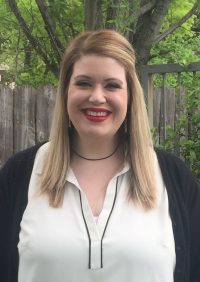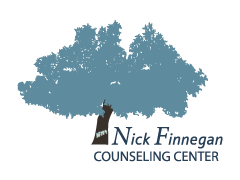Sharing Our Stories: Reducing the Stigma of Seeking Mental Health Services
At some point in their life most people experience hardship or trauma leading to depression, anxiety, addiction or other mental health issues. The road to healing can be difficult as often those who are hurting experience shame and isolation. In these moments of struggle reaching out to others can bring healing and positive change, but how do those who are hurting know when or how to share their story? Perhaps you have a friend or family member that you know is struggling but you’re not sure how to be that trusted listening ear to support them. May is Mental Health Awareness Month, it is a month where we at Nick Finnegan Counseling Center want to focus not only on the importance of spreading awareness of mental health struggles but also want to help reduce the stigma of reaching out for help.
It can feel challenging to know how to share our stories of struggle or when to know if it’s time to seek professional help. If professional counseling feels scary or overwhelming starting with a trusted friend, loved one or mentor may be a good option. Talking to a trusted person may be a good idea if you are going through a life change or transition. Changes can bring increased stress and uncertainty, and it can be helpful to talk to others who’ve walked a similar journey or who have more life experience. If you’re experiencing mild symptoms of anxiety or depression or are burdened by other emotions, opening up to a trusted person can help relieve some of the emotional burden.
Sharing our emotional struggles is a personal and vulnerable act, and it’s not information that is meant for just anyone. Choose a trustworthy person whom you believe would keep your story to themselves. Ideally this person should be able to listen with compassion, understanding and give advice only when you ask for it. A trusted person should also encourage you to make healthy decisions and support what is best for you and others. Sharing our story with someone we don’t know well, who tends to gossip, encourages us to take revenge, or act out in dangerous ways isn’t the best person to turn to.
If you don’t have a trustworthy person in your life, a professional counselor may also be the best place to start if you have experienced trauma, addiction, severe anxiety, depression, or are struggling with thoughts of suicide. Of course, you don’t need to have struggled with something major in order to meet with a counselor. When you meet with a therapist, know that while is important to be honest you do not need to feel pressured to share your entire story all at once. A compassionate therapist will understand if you need time to develop trust with them. Don’t be discouraged if the first therapist you meet with isn’t the right fit. Be open to asking for other referrals or finding a different therapist you might connect with better.
If you’d like to be the trustworthy person with whom others can talk to, start with being curious and avoid making quick assumptions about what others may be struggling with. Open-ended phrases such as “It seems like something is off” or “I’ve noticed you seem sad/worried/angry” may help get the conversation started. If the other person wants to share, try to find somewhere to talk that feels comfortable where you won’t be easily distracted. Having conversations at work or in environments where you can’t give the other person your full attention is not ideal. Once the other person has shared, don’t feel like you have to have all the answers, most of us find comfort in just being able to get our feelings out. If the other person agrees to it, offer to check-in on them from time to time or send them encouraging messages. A supportive community is very important to a person’s over all well-being. Finally, be honest if you’re not sure what to do next, or don’t have all the answers a professional can help with the next steps.
When others share their stories of struggle and we respond with openness and support, we help reduce the stigma of mental health. When we share our own story, it can bring healing not only to ourselves but can also encourage others to seek help.
by April Henderson, M.A., LPC
April is a licensed professional counselor who specializes in – EMDR, trauma, anxiety and relationship issues. To learn more about April or our other counselors, please click here.

